News
Palsgaard hits carbon-neutrality two years early
2 Jul 2019Emulsifier company Palsgaard has announced that it has met its target of being completely carbon-neutral two years ahead of schedule, reducing its net carbon emissions from 12,029 tonnes in 2010 to zero in 2018.
Over that period, it says it has achieved CO2 reductions totalling 56,175 tonnes – equivalent to the amount produced by 4,885 European (EU) households in a year.

The company’s six global production sites are now all carbon-neutral, mainly through changing sources of energy. Strategies have included new heat recovery and insulation techniques, a switch from heavy fuel oil to biogas, and the use of renewables. At Palsgaard’s main site in Denmark, all electricity is sourced from wind, and indoor heating is powered by burning home-grown straw rather than oil.
As far as the company is aware, it is the only emulsifier manufacturer to achieve carbon neutrality but it hopes others will follow suit.Jakob Thøisen, CEO of Palsgaard said: “This is a major milestone ― not just for Palsgaard but for the whole ingredients industry. The production of emulsifiers is very energy-intensive and when we decided to eliminate our carbon footprint, many thought it couldn’t be done. However, we’ve demonstrated that with ambition and innovation, sustainable ingredient production is possible. Achieving CO2-neutral status ahead of schedule has given us extra energy to continue making a difference. We hope other companies will be inspired to go on the same journey.”Palsgaard, which is celebrating its centenary this year, says it is now planning a range of new green initiatives, including a new solar energy park at its headquarters in Denmark.Anders Brix, Group CEO of the Schou Foundation, which owns Palsgaard, said: “Throughout Palsgaard’s hundred-year history, we have been dedicated to meeting challenges and climate change is undoubtedly the greatest challenge facing us now. At the moment, carbon neutrality is a rare achievement, but it will soon be the norm. Manufacturers will be forced to reduce their emissions, not just because it’s the right thing to do, but because environmentally conscious consumers demand it.”As well as being manufactured in CO2-neutral factories, Palsgaard says that all its emulsifiers are vegetable-based and sourced as sustainably as possible. Where the company uses palm oil ingredients, it relies exclusively on RSPO-certified raw materials, enabling it to offer its complete product range as MB- or SG-certified.Related news
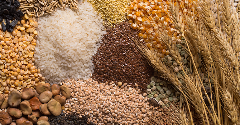
Sustainable grains present a healthy growth opportunity
3 Oct 2024
Food insights provider SPINS unveils the latest trends in the sustainable grains field, exploring how seven leading grains show healthy growth despite challenges in the global value chain.
Read more
Will we see a wave of NPD that focuses on insulin management?
1 Oct 2024
As a new study finds protein and fats can help manage insulin, food manufacturers are building on emerging GLP-1 platforms and supporting nutritional guidance.
Read more
New environmental food scoring standards emerge
30 Sep 2024
EIT Food and Foundation Earth collaborate to launch environmental food scoring for products entering the global supply chain.
Read more
Africa progresses with food transformation strategy
19 Sep 2024
Large-scale efforts are underway to drastically change the African food sector with a $61 billion (€55 bn) set of proposed transformation plans to be implemented across forty countries. Yet there are concerns that this initiative severely jeopardises s...
Read more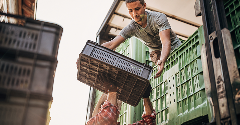
European Commission releases new supply chain recommendations
6 Sep 2024
The European Union’s (EU) legislative arm publishes its latest guidance on protecting the market’s food supply chain against current and future crises.
Read more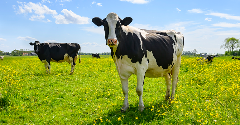
Tesco trials methane mitigation supplement for dairy cattle
5 Sep 2024
Tesco is trialing a methane-reducing feed supplement for one of its key UK dairy farms, sustainable UK milk producer Grosvenor Farms.
Read more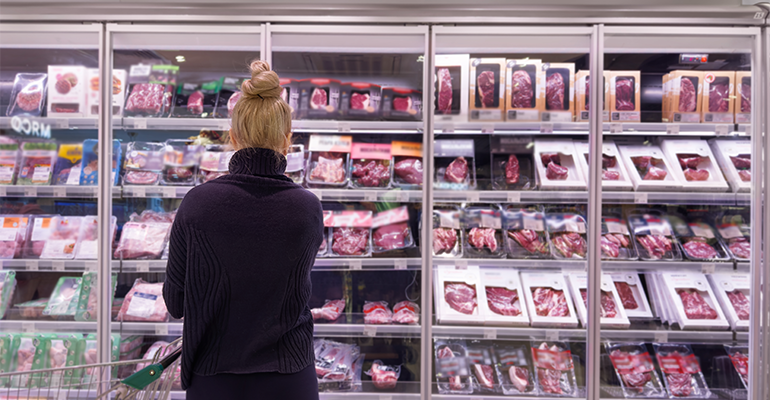
European consumers want more freedom to choose biotech-based food
3 Sep 2024
Survey findings point to growing levels of interest in cultivated meat as European consumers say they want the freedom to choose the lab-based products.
Read more
Will ‘foie gras’ become the EU’s first approved cultivated meat?
20 Aug 2024
French startup Gourmey has submitted its cultivated foie gras for approval in the European Union (EU), signalling the first application of its kind in the region.
Read more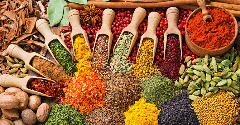
Europe gravitates to African spices
19 Aug 2024
Shipping delays, limited production output and climate change impact Europe’s spice supply, creating opportunities for African brands to enter the captive market.
Read more
Paris Olympics: Food and beverage brands champion health, fun, and sustainability
5 Aug 2024
Food and beverage brands are aligning with the Paris Olympics 2024 Food Vision, which emphasises sustainability, local sourcing, and plant-based diets.
Read more